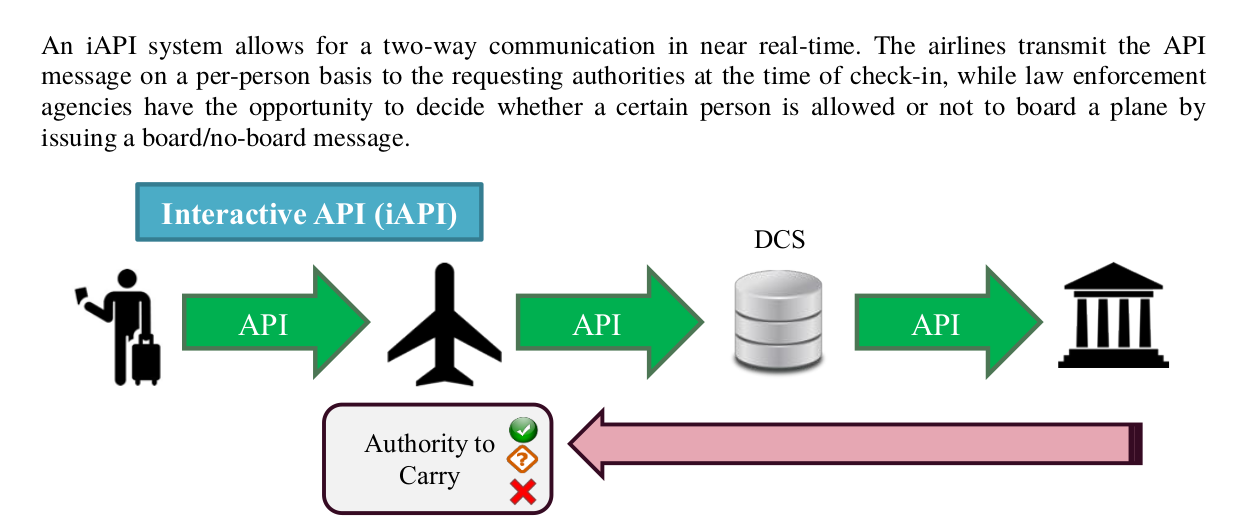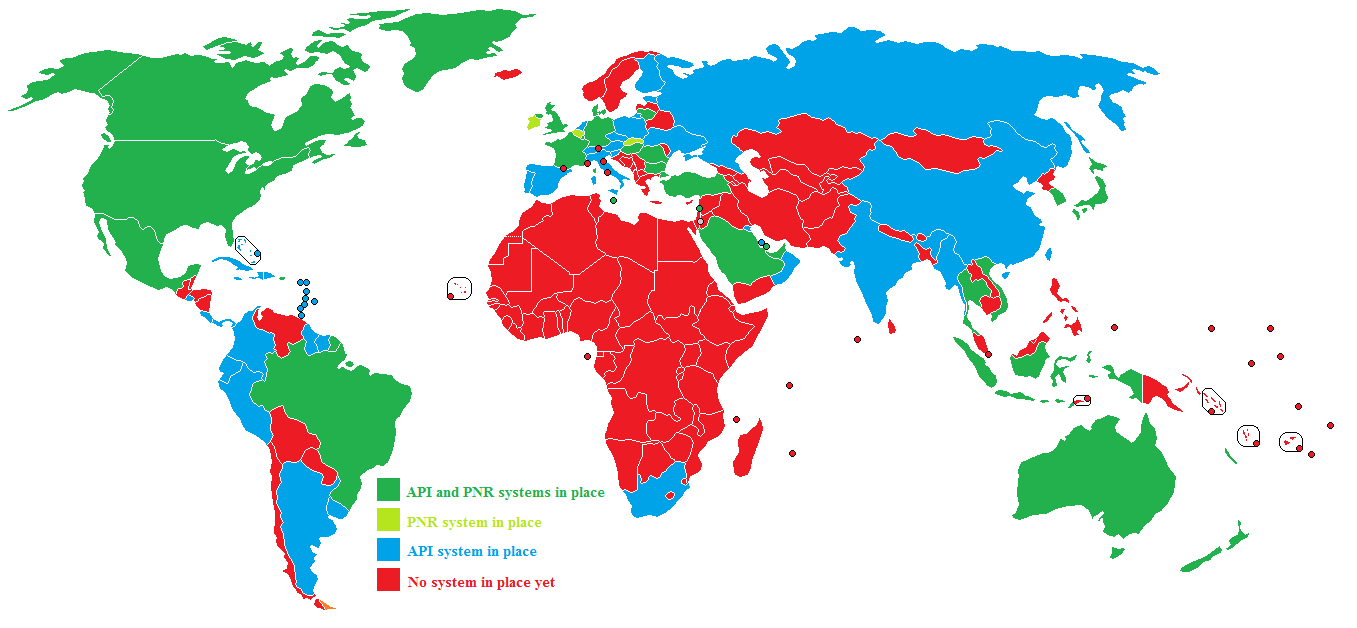Government permission to travel: “Authority to Transport”
A white paper on the use of PNR and API data (airline reservations), published by the Organization for Security and Co-operation in Europe (OSCE) in January 2019, lays out more starkly than ever before the goal of governments around the world: a permission-based system of government control and prior restraint in which a common carrier must receive “Authority to Carry” (authority to transport) with respect to each passenger, before allowing them to board any flight.
We’ve talked about this sort of permission-based travel control before, including in this 2013 overview of the system of US government surveillance and control of travel. (See our slides from that presentation). But we’ve rarely seen governments spell out so explicitly their intent to convert travel from a right to a privilege which can be exercised only by permission of the police:
An iAPI system allows for a two-way communication in near real-time. The airlines transmit the API message on a per-person basis to the requesting authorities at the time of check-in, while law enforcement agencies have the opportunity to decide whether a certain person is allowed or not to board a plane by issuing a board/no-board message.
The OSCE document, brought to our attention by Statewatch and NoPNR, is the latest revision of a white paper on “the use of Advance Passenger Information (API) and Passenger Name Record (PNR)” data, revised following an OSCE seminar on “Passenger Data Exchange” with governments held in November 2018.
The diagram and description of the iAPI permission system and the mention of “Authority to Carry” — transforming the use of API and PNR from passive surveillance to active government control and prior restraint — have been added since the previous version of the white paper posted by OSCE in March 2018, less than a year ago.
Why the new openness about this government agenda? As the white paper and other recent international initiatives for surveillance and control of travel make clear, governments have been emboldened by their largely successful (to date) policy laundering efforts to get travel surveillance and control mandated by the UN Security Council in the name of the War On Terror and/or “aviation security” mandate.
This purported authority is of questionable validity, given that it contravenes rights to freedom of movement recognized by international treaties and the US Constitution. And the actual basis, if any, for declining to give “Authority to Carry” a particular disfavored individual often has nothing to do with terrorism, aviation security, or any crime.
But the willingness of governments such as the members of OSCE to talk openly about their travel control agenda reflects their belief that they have obtained all the legal authority they need, and no longer have to worry about public outrage at the idea that they think freedom of movement is a special privilege, not a right.
The OSCE white paper also includes this chilling map of the countries where governments already obtain copies of commercial information about air travelers, before their flights:
These travel surveillance and control systems rely on systems for identification of travelers, which are being developed and mandated in parallel. Those efforts will be the focus of the next annual symposium and exhibition on ICAO’s Traveller Identification Programme (TRIP) at ICAO headquarters in Montreal from June 25-28, 2019.
Only public expressions of outrage, and public acts of resistance, will get governments that want to control our movements to back down before this sort of permission-based control of our movements becomes, as they intend, the global norm.

